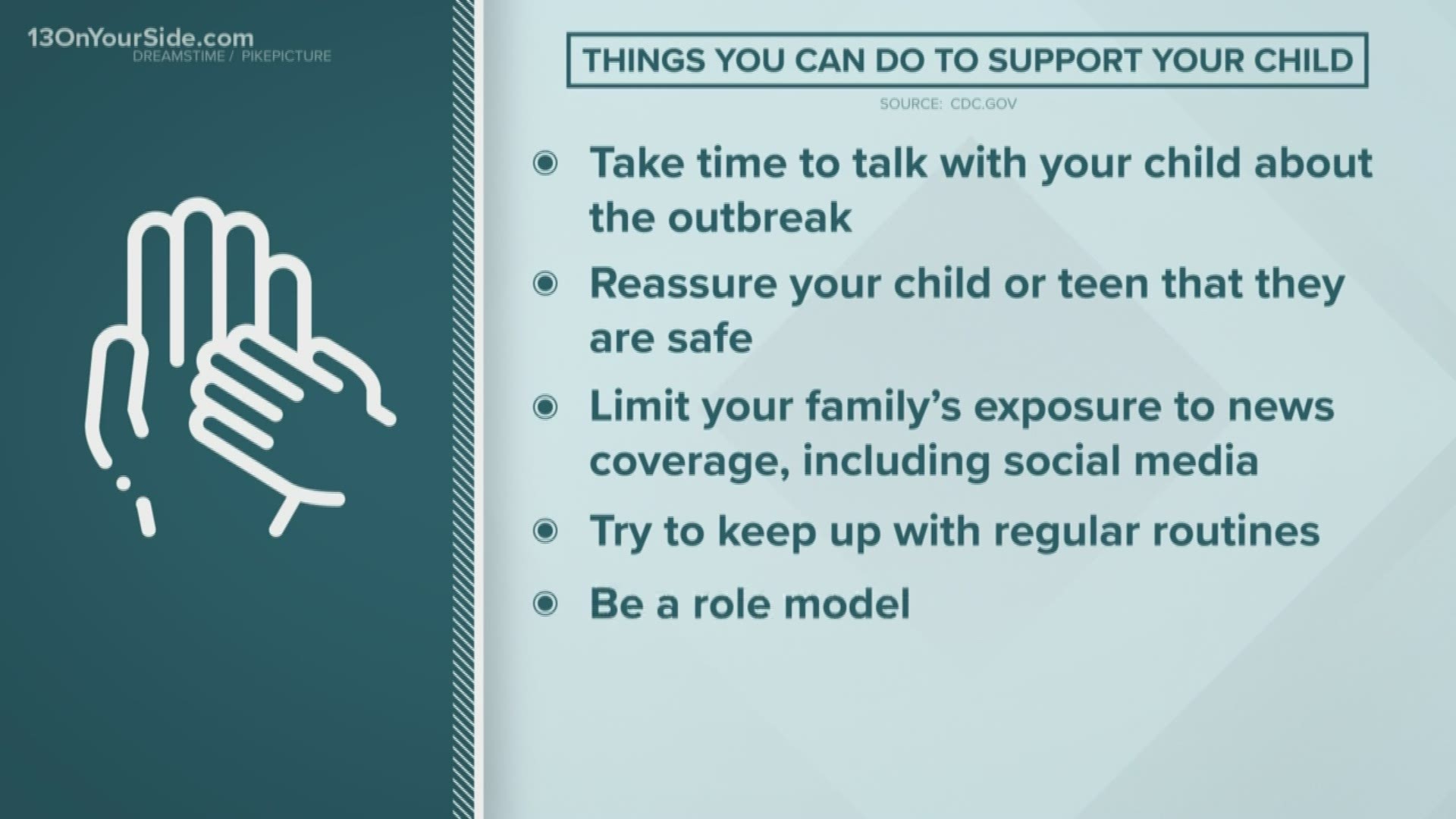GRAND RAPIDS, Mich. — Many of us are doing everything we can to help prevent the spread of coronavirus, or COVID-19.
According to Cleveland Clinic’s Matthew Faiman, M.D., one of the best ways to keep illnesses from jumping from person to person is through the use of technology – or telemedicine.
Telemedicine connects doctors and patients in real time, by using a web-based video service.
“Telemedicine and telehealth, with contagious illness, whether it be SARS, or Ebola, or influenza, and now coronavirus, is the typical best-use case to reduce people coming into contagious waiting rooms, reducing the chance that caregivers, themselves, getting sick, and reducing the chance that patients themselves can co-infect others that are not sick,” said Dr. Faiman.
In many cases, doctors are able to diagnose a condition virtually and recommend appropriate treatments.
Sometimes, additional in-person testing is needed, but Dr. Faiman said touching-base with a doctor online, first, can help speed up the time it takes to receive care.
“Doctors get that body language, that interaction with the patient to say, ‘I think it would be helpful if we did this, or, I think we need an x-ray, or we need an additional lab test,’ or, ‘I am concerned that your symptoms are suggestive enough that you need in-person care,” he said.
Virtual visits can help keep people away from each other when they’re feeling ill, which helps stop the spread of illness.
And for people who are well, it allows them to avoid coming in to the office and risking picking up a bug.
Dr. Faiman said telemedicine is also a good way for people to get their questions answered quickly.
“It’s a convenience, but it also provides access to care,” he said. “Some of the hardest parts for a patient is navigating around the healthcare system to know when they can be seen and where they can be seen. So, it allows us to see a patient, really within a few minutes.”
Dr. Faiman also points out that when well people use telemedicine, it frees up emergency departments and the doctor’s office to see the patients who need hands-on care right away.
STATE RECOMMENDATIONS FOR COVID-19
Patients with confirmed infection have reportedly had mild to severe respiratory illness with symptoms of:
- Fever
- Cough
- Shortness of breath
The best prevention for viruses, such as influenza, the common cold or COVID-19 is to:
- If you think you have been exposed to COVID-19, call your health care provider. If you do not have a health care provider, call the nearest hospital.
- Wash your hands often with soap and warm water for 20 seconds. If not available, use hand sanitizer.
- Avoid touching your eyes, nose, or mouth with unwashed hands.
- Cover your mouth and nose with a tissue or upper sleeve when coughing or sneezing.
- Avoid contact with people who are sick.
- If you are sick, stay home, and avoid contact with others.
- Stay at least 6 feet away from others when in a public setting.
RELATED VIDEO:
MORE CORONAVIRUS NEWS:
►Make it easy to keep up to date with more stories like this. Download the 13 ON YOUR SIDE app now.
Have a news tip? Email news@13onyourside.com, visit our Facebook page or Twitter. Subscribe to our YouTube channel.




